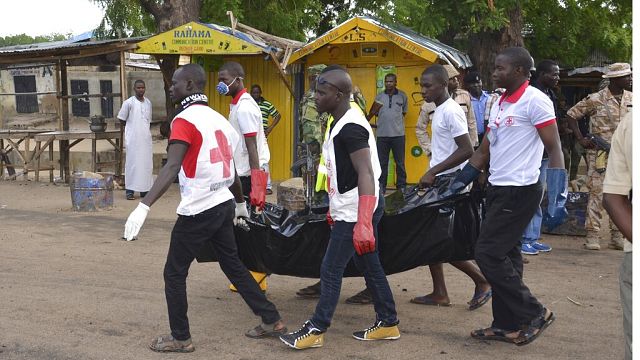The tranquility of the communities in Nigeria’s Benue state was shattered by a series of brutal attacks orchestrated by unidentified gunmen, claiming the lives of at least 20 individuals. The incidents unfolded late Sunday, sending shockwaves through the Gwer West and Apa areas. As details emerged, the grim reality painted a devastating picture of the aftermath.
Police spokesperson Udeme Edet confirmed the tragic events, revealing that 12 people lost their lives in Apa, with another 10 victims in Gwer West. However, local reports hinted at a potentially higher death toll, with fears that the actual number could surpass 30. Amidst the chaos, five survivors clung to life, undergoing urgent medical care at a nearby hospital.
In the wake of these heinous acts, the discrepancy in death tolls highlighted the challenges of accurately documenting such atrocities. While official figures often downplay the scale of violence, local accounts and eyewitness testimonies provide a more harrowing narrative of the horrors endured by these communities.
Paul Biam, chief of staff to Benue Governor Hyacinth Alia, made a poignant visit to the affected areas, pledging the government’s unwavering commitment to safeguarding the state’s residents from further harm. The recent surge in attacks in Gwer West and Apa has thrust these regions into the spotlight, underscoring the urgent need for enhanced security measures and proactive interventions.
The underlying tensions fueling these recurrent bouts of violence stem from longstanding disputes between local herders and farmers over access to essential resources like land and water. The intricate dynamics of these conflicts reveal a complex interplay of economic, environmental, and social factors that have escalated into deadly confrontations.
“Such attacks are emblematic of the deep-rooted challenges facing Nigeria’s northern region, where the clash between herders and farmers has become a recurrent tragedy,”
remarked an expert familiar with the region’s intricate dynamics. The historical backdrop of these conflicts traces back to decades-old grievances, compounded by contemporary pressures and competing demands on limited resources.
As the nation grapples with the repercussions of these senseless acts of violence, the broader implications reverberate across the country, prompting soul-searching conversations on sustainable conflict resolution and community resilience. The need for inclusive dialogue, equitable resource management, and proactive peace-building initiatives has never been more pressing.
In the face of such tragedies, the resilience and solidarity of the affected communities stand as a beacon of hope amidst the darkness. Their unwavering spirit and determination to rebuild in the aftermath of destruction serve as a testament to the human capacity for resilience and renewal in the face of adversity.
The echoes of sorrow and loss linger in the air, reminding us of the fragility of peace and the imperative of collective action in safeguarding the sanctity of life. As the sun sets over the embattled landscapes of Benue state, may it herald a new dawn of reconciliation, justice, and healing for all those touched by the shadows of violence.

